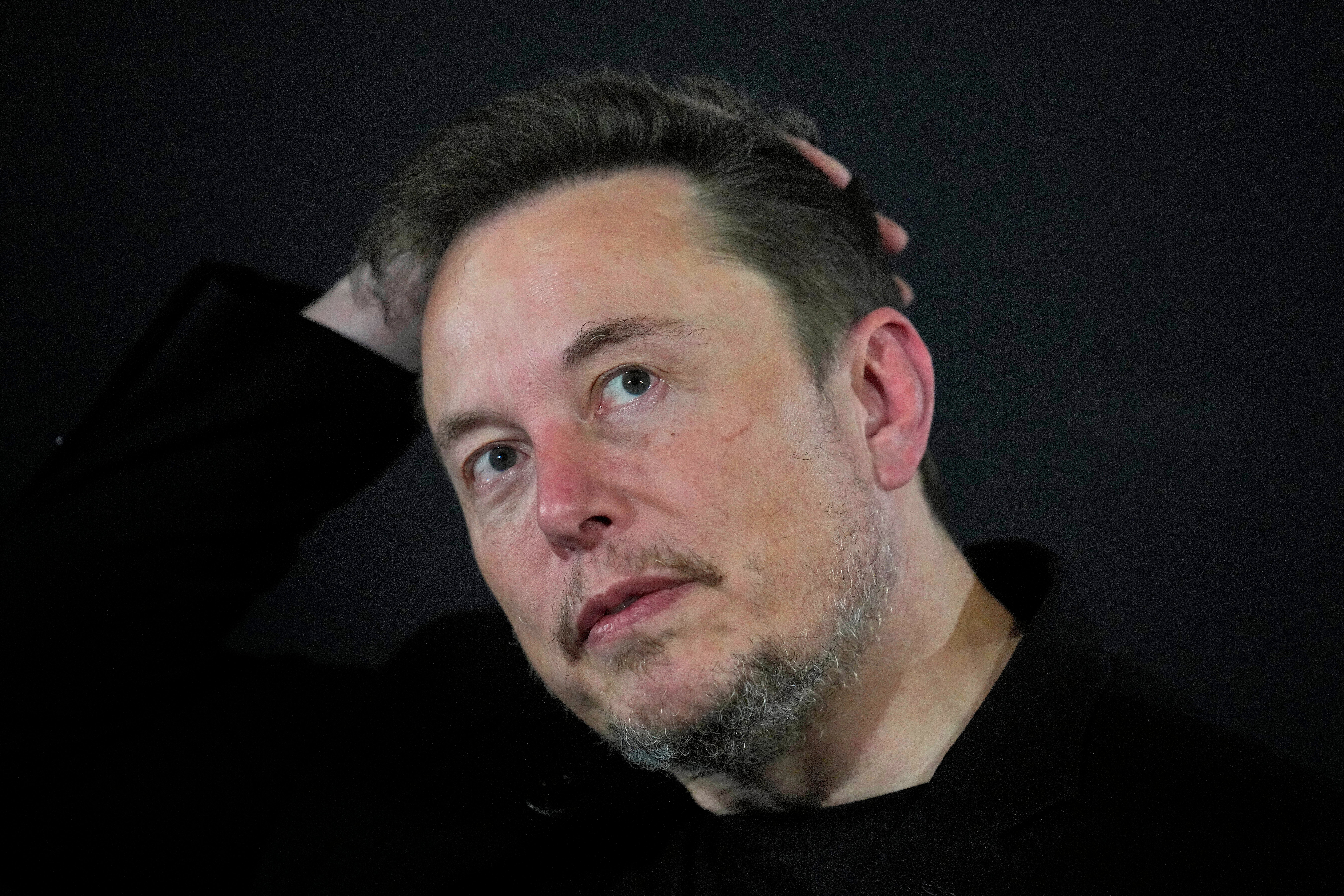$56bn out of pocket and poorer than Jeff Bezos... don’t you feel sorry for Elon Musk?
The Tesla boss had his dizzying pay package slapped down – could it be that he might, for the first time, understand the meaning of the word ‘no’, asks James Moore


Elon Musk is having a rollercoaster of a week. Just a day after trumpeting that one of his companies had planted a chip in someone’s brain, he was venting furiously on his platform X (formerly Twitter), as a result of a Delaware court slapping down his dizzying Tesla pay package.
The plan, agreed back in 2018, could have seen the business polymath take home an eye-watering $56bn (£44bn), mostly in Tesla’s stock.
Yet Kathaleen McCormick, the first woman to lead Delaware’s Court of Chancery (the place to go for corporate litigation in the US) decided that the so-called “Superstar CEO” had dominated the process which led the board of directors to approve the award – which was more than 33 times larger than Musk’s last pay package. This, she ruled, effectively shortchanged the group’s shareholders – some of whom chose to file the lawsuit.
The really tragic thing? If the ruling sticks, Musk may well lose his place as the world’s richest man to Amazon founder Jeff Bezos. Ouch.
The case will once again shine a harsh light on the incredible sums paid to the likes of Musk in comparison to what is granted to those who arguably make more valuable contributions to society (doctors, nurses, teachers etc). But even if for no more than curiosity alone (and for an idea of Musk’s influence) it’s worth delving into the purpose of a slap on the wrist like this – and what it’s meant to achieve.
The intention of the package in the first place was, presumably, to keep Musk’s eyes on the ball at Tesla, given his other interests: SpaceX, Neuralink, X/Twitter. This is not your average “fat cat” CEO spending 18 hours a day at his desk in the pursuit of returns for shareholders and a bonus. Musk is an economy in his own right – he juggles more balls than Cirque du Soleil.
And while he has stepped aside as Twitter’s self-appointed “Chief Twit” (a move which initially helped catalyse a revival in Tesla’s share price) he still spends an inordinate of time on the platform, mostly sharing a range of hard-right talking points and reinstating divisive figures. So, it’s perhaps no surprise that the court may have wanted Musk to refocus his attentions.
What might surprise you, however, is that I actually think some of the criticisms of the dollar figure attached to the package miss the point. Yes, it’s absurd – but Musk persuading his board to approve it was less about a CEO greedily trying to hoover up as much filthy lucre as possible than it was an exercise in corporate power and control.
Musk sold a substantial portion of his stake to finance his acquisition of Twitter. He now wants its other shareholders to, in effect, hand him back what he has given up. You don’t need 50 per cent to secure effective voting control of a company, nor anything like it. The package would get Musk to 23 per cent, close to his stated aim of 25 per cent, which would effectively allow him to crush any opposition to whatever plans he might have.
He has, for example, publicly mused about being uncomfortable with incorporating his interests in AI and robotics – reports have claimed he’s been fundraising for exactly this – under the Tesla umbrella, if he doesn’t have control over it.
Tesla’s other shareholders were expected to hand him that on a silver platter in the hopes of being allowed along for the ride at a time when Tesla’s core product – its electric cars – have been struggling.
Ageing models, steep price cuts, slow progress on promised new developments contributed to Wall Street’s biggest sin: missing analysts’ quarterly earnings forecasts. This knocked billions of dollars off the share price. Musk’s earnings call, in which he twittered about the group’s “next growth wave”, was described by Dan Ives of Wedbush Securities as a “train wreck”. While Ives is still a long-term believer, the problem was that Musk failed to address the company’s more immediate problems.
Tesla still enjoys a funky valuation, even after the shares’ decline. Musk is a brand, which – attached to any company – will hand it a premium. He has a dedicated band of starstruck fanboys among the investment community who afford him leeway others simply wouldn’t get.
The stock price took another kicking upon the judge’s ruling, probably because some of them feared this would go beyond a hissy fit on X – and that Musk will share his next dream with others inclined to let him have his way.
Musk undoubtedly behaves like a spoiled child whose first, second and third priorities are himself. There are plenty willing to accept the crumbs from his table, but his more sober backers may care to reflect on that.
As for the rest of us? We can certainly indulge in a good dose of schadenfreude. None of us, I’d hazard, will see $56bn in our lifetime – let alone as a tidy bonus. But I still feel kind of sorry for him... even if it is immensely satisfying to witness someone with the gumption to say “no” to this man.
We’re all the richer for it.





Join our commenting forum
Join thought-provoking conversations, follow other Independent readers and see their replies
Comments